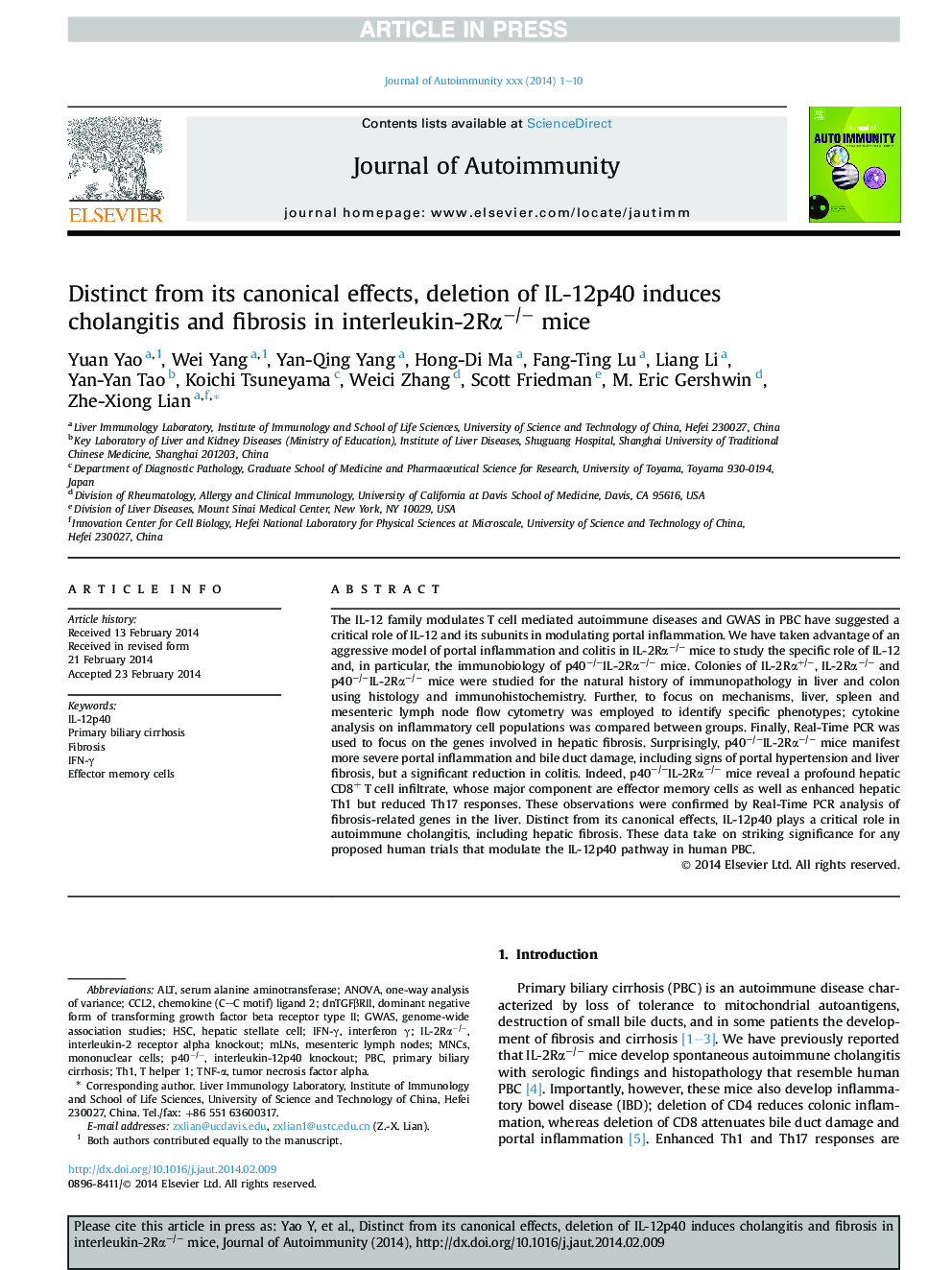| Article ID | Journal | Published Year | Pages | File Type |
|---|---|---|---|---|
| 6119275 | Journal of Autoimmunity | 2014 | 10 Pages |
Abstract
The IL-12 family modulates T cell mediated autoimmune diseases and GWAS in PBC have suggested a critical role of IL-12 and its subunits in modulating portal inflammation. We have taken advantage of an aggressive model of portal inflammation and colitis in IL-2Rαâ/â mice to study the specific role of IL-12 and, in particular, the immunobiology of p40â/âIL-2Rαâ/â mice. Colonies of IL-2Rα+/â, IL-2Rαâ/â and p40â/âIL-2Rαâ/â mice were studied for the natural history of immunopathology in liver and colon using histology and immunohistochemistry. Further, to focus on mechanisms, liver, spleen and mesenteric lymph node flow cytometry was employed to identify specific phenotypes; cytokine analysis on inflammatory cell populations was compared between groups. Finally, Real-Time PCR was used to focus on the genes involved in hepatic fibrosis. Surprisingly, p40â/âIL-2Rαâ/â mice manifest more severe portal inflammation and bile duct damage, including signs of portal hypertension and liver fibrosis, but a significant reduction in colitis. Indeed, p40â/âIL-2Rαâ/â mice reveal a profound hepatic CD8+ T cell infiltrate, whose major component are effector memory cells as well as enhanced hepatic Th1 but reduced Th17 responses. These observations were confirmed by Real-Time PCR analysis of fibrosis-related genes in the liver. Distinct from its canonical effects, IL-12p40 plays a critical role in autoimmune cholangitis, including hepatic fibrosis. These data take on striking significance for any proposed human trials that modulate the IL-12p40 pathway in human PBC.
Keywords
IFN-γTh1MLNsMNCsEffector memory cellsPBCT helper 1IL-12p40ALTCCL2HSCserum alanine aminotransferaseinterferon γANOVAone-way analysis of variancetumor necrosis factor alphaHepatic stellate cellMononuclear cellsPrimary biliary cirrhosisTNF-αFibrosisGenome-wide association studiesGWASchemokine (C–C motif) ligand 2mesenteric lymph nodes
Related Topics
Life Sciences
Immunology and Microbiology
Immunology
Authors
Yuan Yao, Wei Yang, Yan-Qing Yang, Hong-Di Ma, Fang-Ting Lu, Liang Li, Yan-Yan Tao, Koichi Tsuneyama, Weici Zhang, Scott Friedman, M. Eric Gershwin, Zhe-Xiong Lian,
